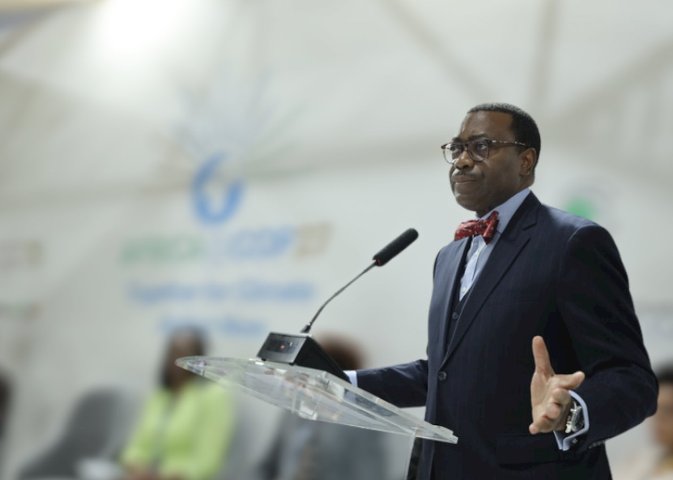AfDB President Calls for Balanced Media Coverage to Reshape Africa’s Narrative
Adesina criticized the current media narrative that often focuses on negative stereotypes of Africa, ignoring the significant achievements and resilience demonstrated across the continent.

Dr. Akinwumi Adesina, President of the African Development Bank Group (AfDB), has issued a powerful call for more balanced media coverage of Africa, emphasizing the need to correct prevailing misconceptions that hinder the continent’s progress. Speaking at the All Africa’s Media Summit in Nairobi, which drew nearly 300 participants from across the continent, Adesina highlighted the crucial role media plays in democracy and economic development.
Adesina criticized the current media narrative that often focuses on negative stereotypes of Africa, ignoring the significant achievements and resilience demonstrated across the continent. He pointed out that in 2023, Africa's growth rate exceeded the global average, with 11 African countries listed among the world's fastest-growing economies. This contrast between reality and representation underpins his call for a change in the portrayal of Africa.
Referencing the 2021 Africa No Filter Report, Adesina noted the persistent use of outdated clichés in media representations of Africa, which do not reflect the continent's true spirit or potential. “We must reshape the narrative about Africa to reflect its true spirit and potential,” Adesina stated, stressing the importance of promoting a narrative that balances both the challenges and successes of Africa.
The summit also addressed the transformation of the media landscape, marked by the rise of digital platforms. While this shift has democratized information, it has also blurred the lines between fact and fiction, complicating the public’s ability to discern truth. Adesina called for the creation of a globally respected African media and proposed strategic collaborations among regional financial institutions to support robust journalism that can act as a catalyst for development.
Highlighting the AfDB’s achievements, Adesina mentioned maintaining a AAA credit rating and launching innovative financial initiatives like the recent $750 million hybrid capital instrument, which was oversubscribed eight times. These successes, he argued, receive far less attention than they deserve, focusing instead on the continent’s challenges.
In a post-address discussion with Julie Gichuru of the Mastercard Foundation, Adesina touched on the critical issue of energy access. He pointed out that despite Africa’s vast energy resources, millions remain without electricity, which is a significant barrier to industrial and overall development. “We cannot industrialize in the dark, we cannot develop in the dark. Our children cannot be competitive in a world of darkness,” he remarked, underscoring the urgency of addressing this issue.
Adesina’s plea at the summit is a call to action for media professionals and stakeholders across Africa to engage in more responsible reporting that accurately reflects the continent’s dynamics and contributes positively to its perception globally.
- READ MORE ON:
- African Development Bank
- Dr. Akinwumi Adesina










